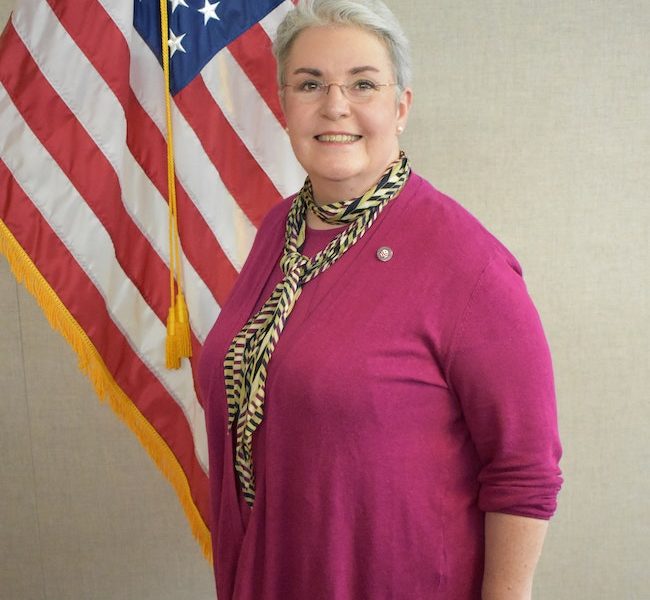 Fitzpatrick
Fitzpatrick
For the second year in a row, Memorial Day observances in communities, organizations and even within family groups will look different later this month because of the pandemic.
The parades, large ceremonies and other occasions, which I and so many others in the Oregon veteran community have always found moving and meaningful, have not yet been able to safely return in many places.
Yet, the importance of this day – and the emotions and memories that it brings – have not changed.
Memorial Day can be a stark and painful reminder of loved ones who served their country and never returned.
Whether they volunteered during a time of war, stood guard over our peace or never expected to wear the uniform until their draft card arrived – their service and selfless sacrifice represent the best and highest ideals that America has to offer.
We continue to feel their loss today.
In recent months I have found myself reflecting on the themes of unity and strength in diversity.
It was just before the Korean War, in 1948, that President Harry S. Truman issued Executive Order 9981 – abolishing discrimination based on race, color, religion or national origin in the United States Armed Forces. When war broke out in 1950, our country entered the fray with a fully integrated and desegregated military.
I believe those who have served our nation in uniform know the meaning and the value of unity more than almost anyone else. We were trained to protect those on our right and those on our left — and to trust that they would do the same for us.
After service, the diversity of our veteran community is a source of immense pride and strength. We are Black, White, Latinx, Asian American and Pacific Islander, men, women, transgender and non-binary, young and old, urban and rural, of every race, religion and creed – unified through our shared service and sacrifice.
The ranks of the fallen include Sgt. John Noble Holcomb, who was born in Baker, Ore. John was awarded the Medal of Honor posthumously for his courage and sacrifice during the Vietnam War – where he singlehandedly forced an enemy retreat, despite being mortally wounded, saving many American lives.
They include Erin McLyman, from Eugene, who enlisted in the United States Air Force after recovering from a severe, years-long addiction to drugs and alcohol that began when she was in just her first year in high school. She later enlisted in the Oregon National Guard, and was eager to deploy to Iraq. She died March 13, 2010, in an enemy mortar attack.
They include the 100th Infantry Battalion – which became known unofficially as the “Purple Heart Battalion” – The unit was one of only two combat units during World War II that was comprised of second-generation Japanese-Americans (known as “Nisei”) who had briefly had their rifles stripped away due to prejudice following the attack on Pearl Harbor.
They would go on to fight in Europe, even as their families remained in internment camps in the United States. The men of the 100th Infantry Battalion earned recognition as the most-decorated American unit of its size and length of service. The 18,000 men who served earned nearly 9,500 Purple Hearts, 21 Medals of Honor, and an unprecedented seven Presidential Unit Citations.
And the honored ranks of the fallen include Army Sergeant 1st Class Alwyn Cashe, who was the first Black service member to receive the Medal of Honor for service in Iraq or Afghanistan for the heroism he displayed after his Bradley struck a roadside bomb.
The explosion ruptured the Bradley’s fuel cell, engulfing both the vehicle and its occupants in flames. Enemy fire soon rained down. But none of that stopped Sgt. Cashe.
Drenched in fuel, he pulled the driver and five others from the burning vehicle – saving their lives, while suffering second- and third-degree burns over 72% of his body. Despite this, he insisted on being the last person on a medical evacuation helicopter.
Alwyn exhibited incredible courage during that attack.
Putting the welfare of his soldiers ahead of his own and ignoring the terrible burns over 72% of his body, he insisted on being the last person on a medical evacuation helicopter.
Sgt. Cashe died 22 days later – on Nov. 8, 2005. He was only 35.
It is impossible to know exactly what was going through the minds of Sgt. Cashe, Sgt. Holcomb, Pvt. McLyman, the members of the 100th Infantry Battalion, and so many other heroes as they made the ultimate sacrifice. But we who have served know they were motivated by the rare courage and devotion that is common to those who have borne the battle — to protect our nation, our loved ones back home and our fellow servicemembers.
Kelly Fitzpatrick is director of the Oregon Department of Veterans’ Affairs and Gov. Kate Brown’s policy advisor on veterans’ issues. She is a retired Army officer.







